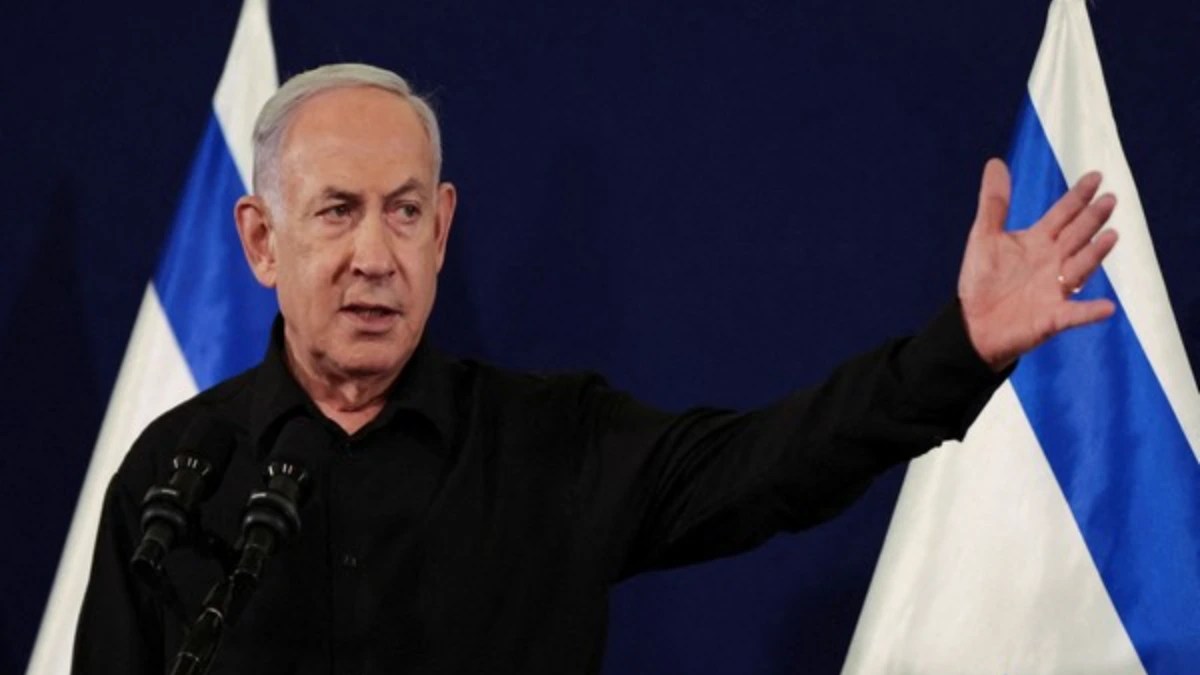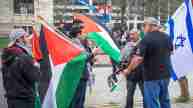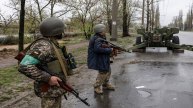Israel will have “security responsibility” over the Gaza Strip for an indefinite period following its war against Hamas, Israeli Prime Minister Benjamin Netanyahu announced in an interview aired Monday night, The Times of Israel reported.
The situation in Gaza post-war remains uncertain, with concerns about how Israel plans to manage it.
“I think Israel will for an indefinite period have security responsibility,” Netanyahu told ABC News. “We’ve seen what happens when we don’t have that… security responsibility, what we have is the eruption of Hamas terror on a scale that we couldn’t imagine.”
The war with Hamas began after approximately 3,000 terrorists breached the Gaza border on October 7, resulting in the deaths of around 1,400 people, mainly civilians, and the abduction of over 240 individuals, including at least 30 children.
The interview also saw Netanyahu admitting that he bore some measure of responsibility for the defence failure that allowed Hamas to commit its atrocities on October 7. When asked, “Do you believe that you should take any responsibility?” Netanyahu replied: “Of course. It’s not a question,” adding that there would be time after the war “to allocate” that responsibility.
Netanyahu did not provide specific details on what Israel’s security oversight in Gaza would entail after the war, but it appears to involve an extended military presence in the Strip. Israel has also insisted that it has no plans to reoccupy the enclave, which it unilaterally withdrew from in 2005, according to The Times of Israel.
Also Read: Israel Forces Take Control Of Hamas Military Outpost In Gaza City: IDF
The Biden administration has expressed opposition to an Israeli reoccupation of Gaza, urging Israel to formulate a plan for the governance of the enclave once Hamas is removed from power. Some suggest that the Ramallah-based Palestinian Authority could replace Hamas, while others doubt the PA’s stability and reliability.
Israeli officials have mentioned the need to maintain a military presence in Gaza as a buffer to protect Israeli civilians. Since Israel’s withdrawal from Gaza in 2005, the region has seen frequent rocket attacks and the threat of offensive attack tunnels. Israeli forces have continued to push deeper into Gaza during the current campaign to target Hamas’s underground tunnels and military capabilities.
Netanyahu’s interview with ABC marked his first appearance in American media since the war began. Before this, the prime minister had embarked on an extensive campaign across multiple American networks to mitigate the backlash regarding his government’s halted judicial overhaul efforts. However, since assuming office in December, Netanyahu has deliberately avoided engaging with mainstream Israeli media, effectively shielding himself from critics, according to The Times of Israel.
During the interview, Netanyahu faced persistent questions about whether he should take responsibility for failing to anticipate the massive Hamas attack and the delayed military response, an issue he has been hesitant to admit thus far.
“I’ve said that there are going to be very tough questions that are going to be asked, and I’m going to be among the first to answer them,” he said.
Asked again on whether he should take any responsibility, Netanyahu answered: “Of course. That’s not a question. It’s going to be resolved after the war. I think there’ll be time to allocate that.”
Netanyahu has faced criticism in Israel for not acknowledging his responsibility during the month since the war commenced. He has maintained that the matter will be scrutinized after the war ends, in contrast to other high-ranking officials, such as the defence minister, the IDF chief, the head of the Shin Bet, and other key officers responsible for intelligence and operational matters, who have unequivocally accepted personal accountability.
In a first, Netanyahu also hinted at flexibility regarding humanitarian pauses in the fighting, with a possibility of agreeing to a ceasefire if Hamas releases the roughly 240 hostages held in Gaza. He emphasised the need to limit civilian casualties while recognising Hamas’s use of the population as human shields.
“As far as practical, little pauses — an hour here, an hour there — we’ve had them before. We’ll check the circumstances in order to enable humanitarian goods to come in or our hostages, individual hostages to leave,” Netanyahu added.
Dismissing suggestions that there was any difference of opinion between him and US President Joe Biden regarding the war, Netanyahu emphasised coordination with the United States on the issue of humanitarian aid to Gaza while not compromising the safety of IDF soldiers. The US has called for temporary localised pauses in the fighting to allow civilians to reach safer locations, ensure humanitarian aid delivery, and potentially facilitate hostage releases.
Hamas-controlled Gaza health authorities reported a death toll of more than 10,000 people, including women and children, in the ongoing conflict. These figures are difficult to independently verify, as they may include Hamas terrorists killed both in Israel and Gaza, as well as those killed by rockets fired by terror groups within Gaza.
The IDF has stated that ground forces are intensifying pressure on Gaza City, and they have killed several Hamas field commanders, significantly affecting Hamas’s ability to launch counterattacks. Combat engineering forces are actively demolishing Hamas tunnels, The Times of Israel reported.
Source: ANI













